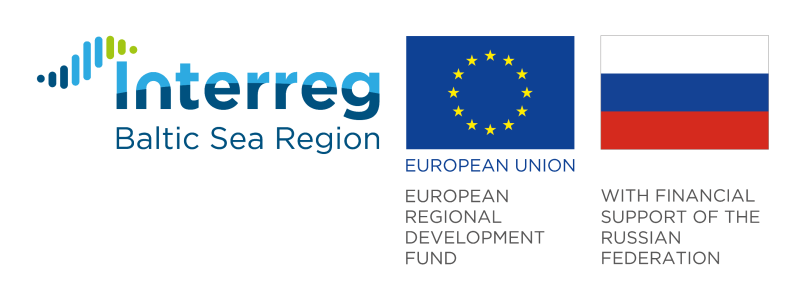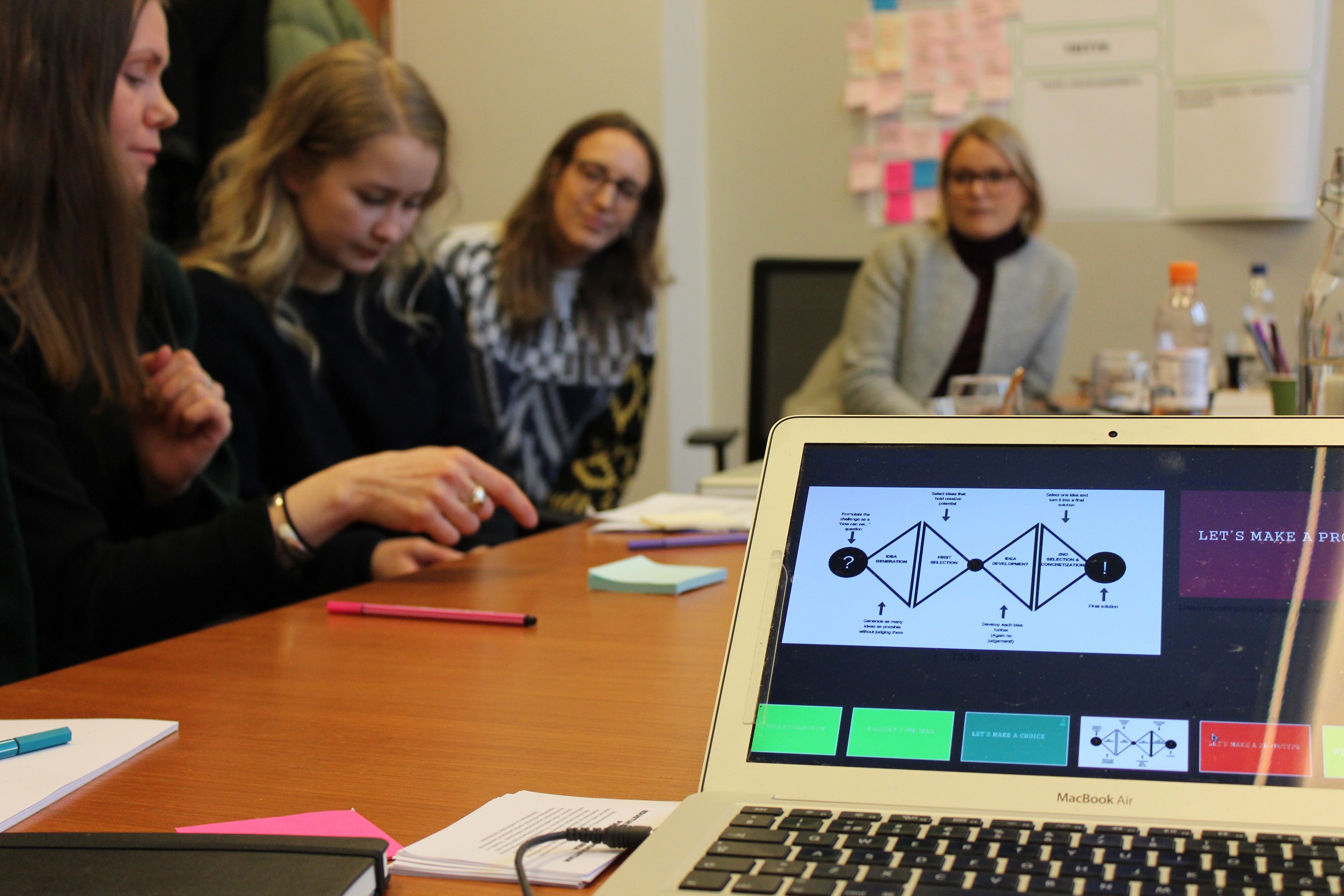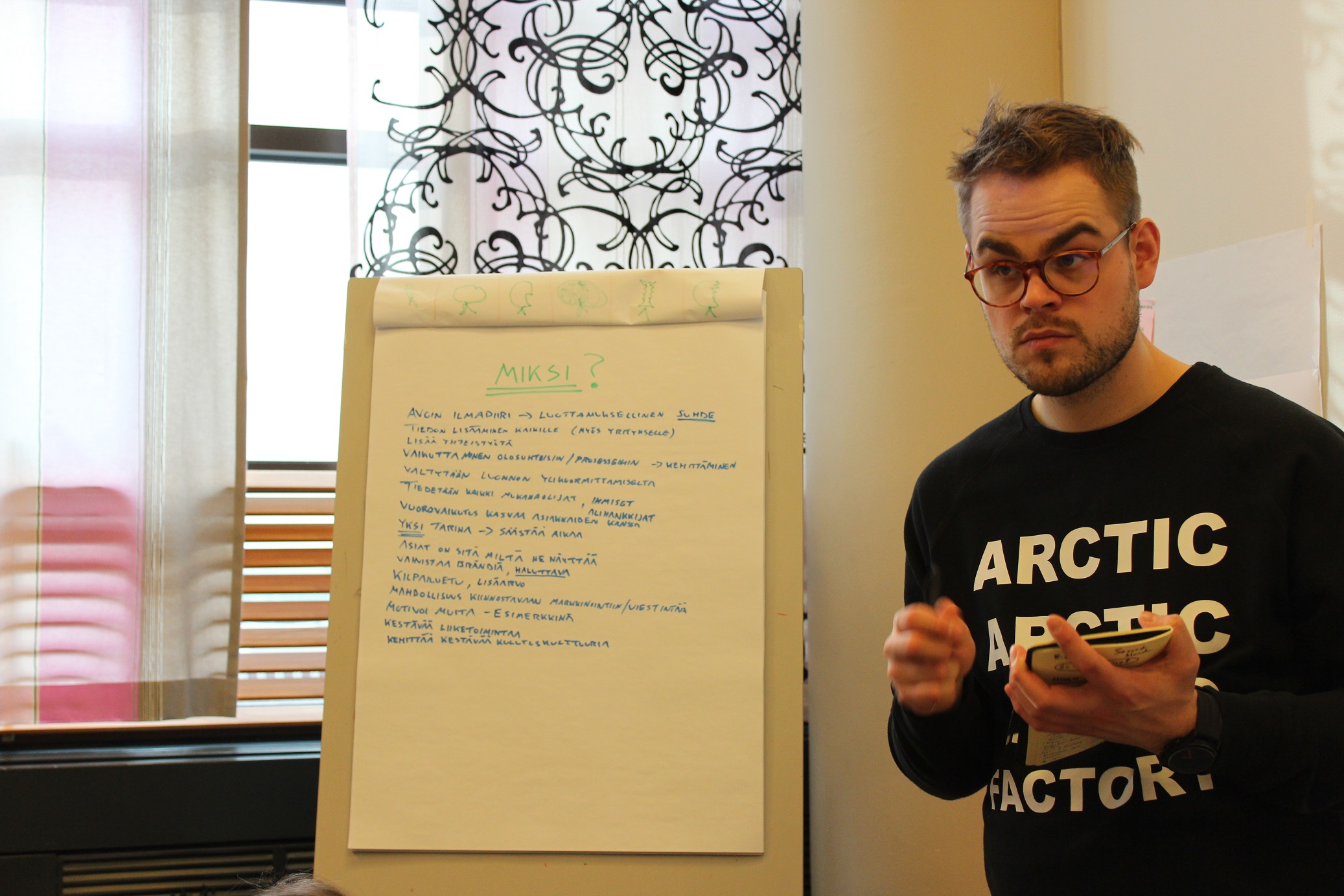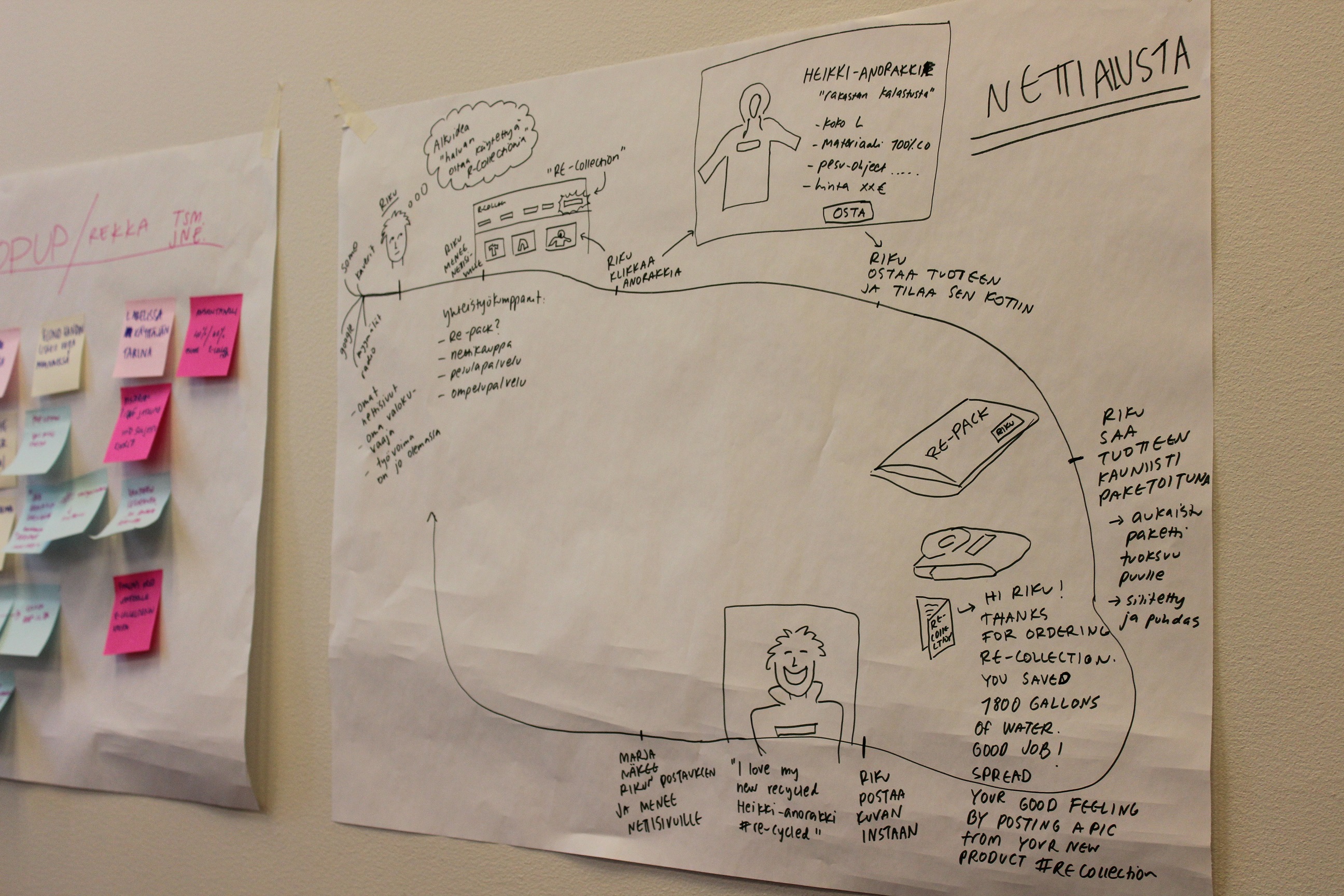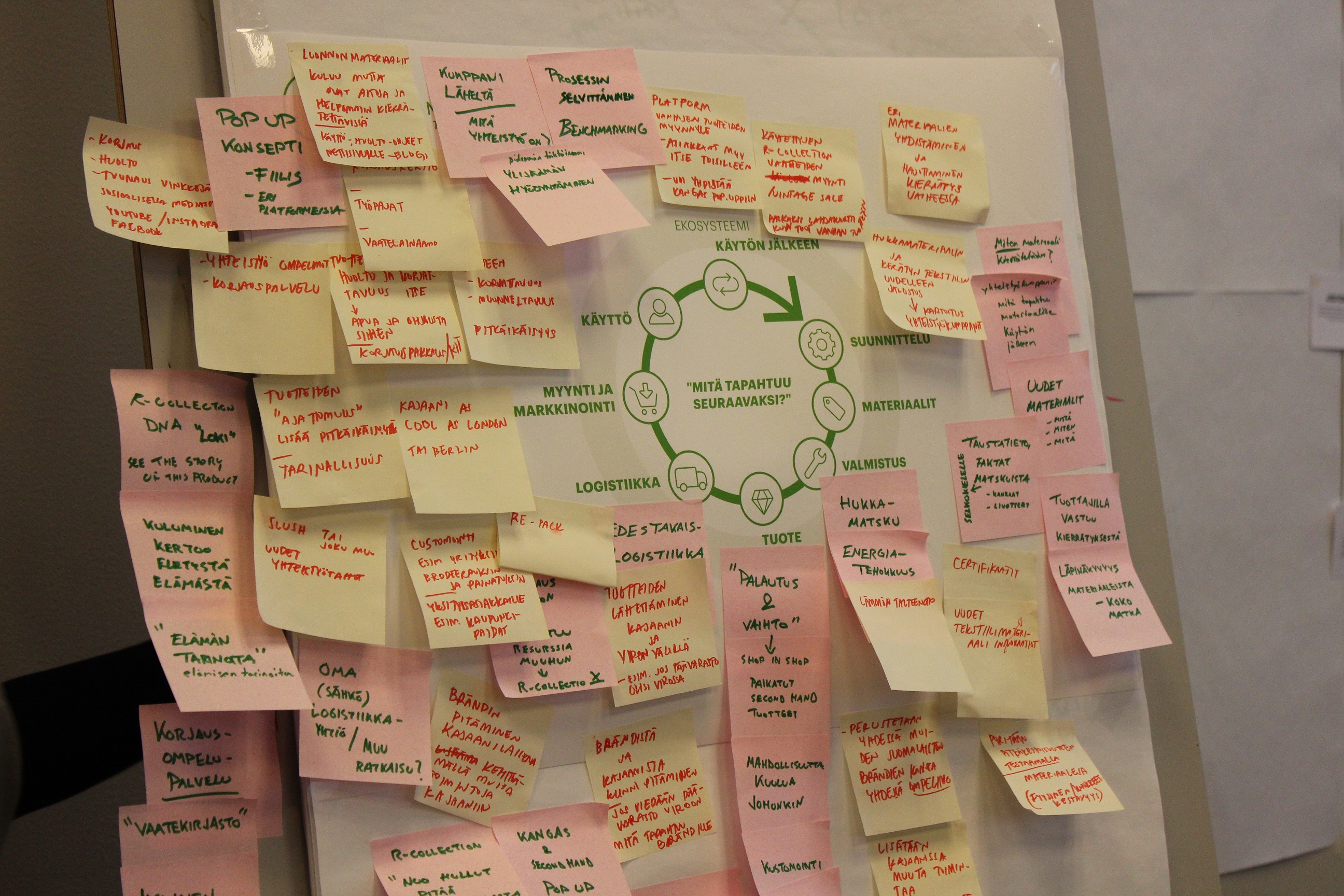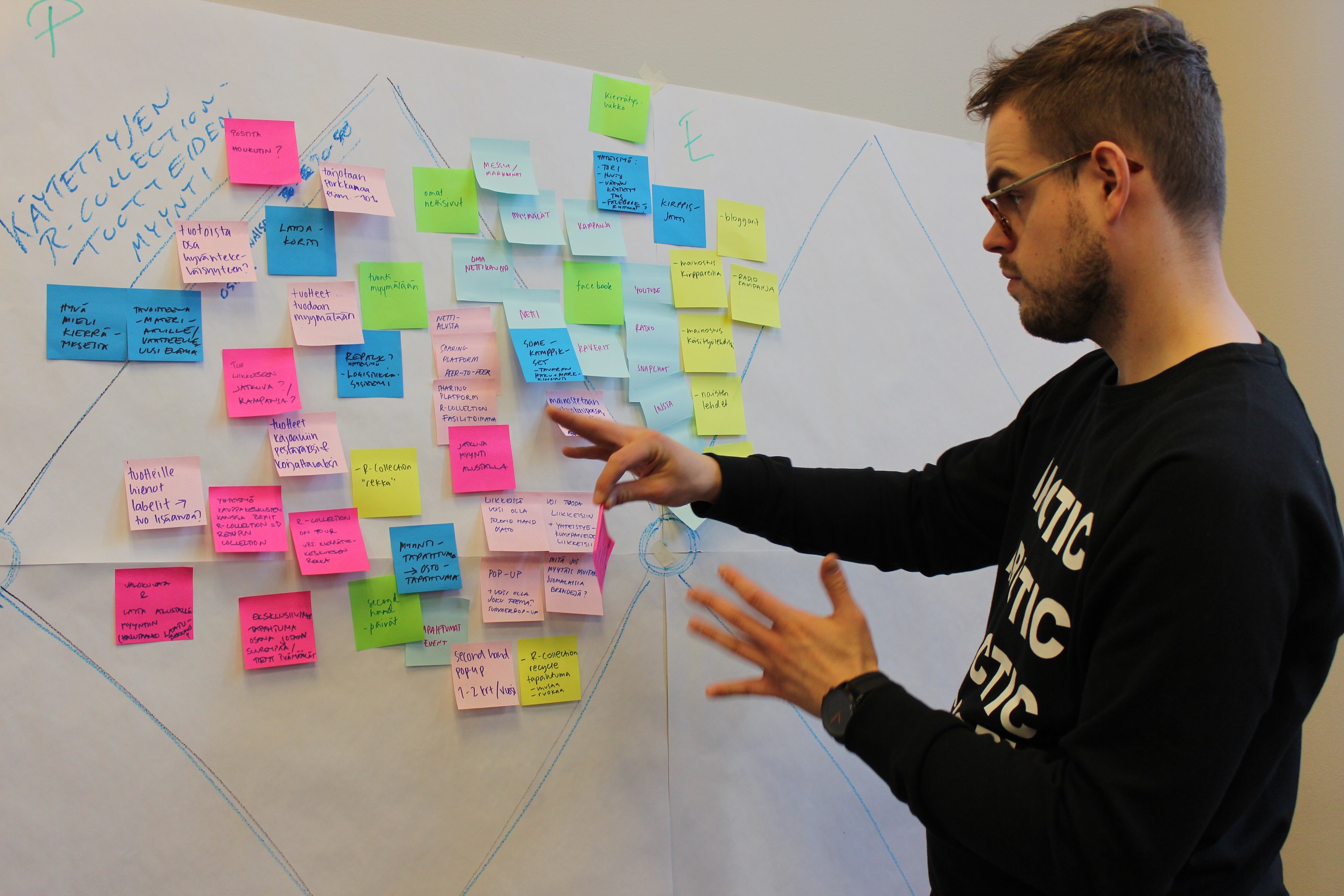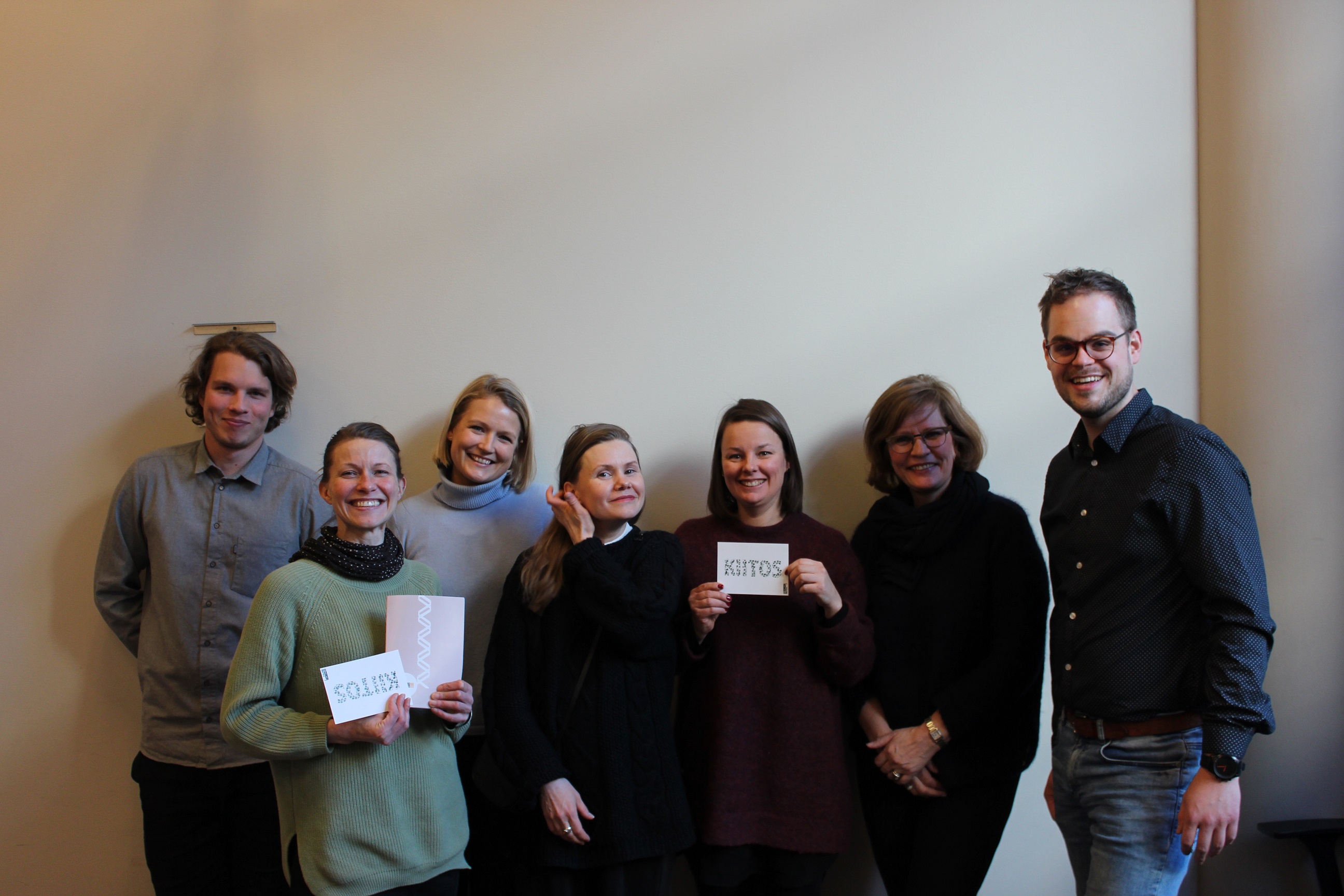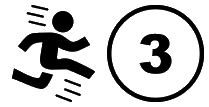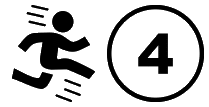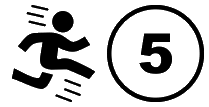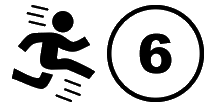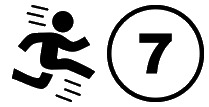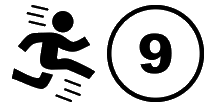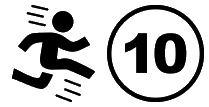Sprint combines training, practical learning, innovations and product/service development with design methods.
-
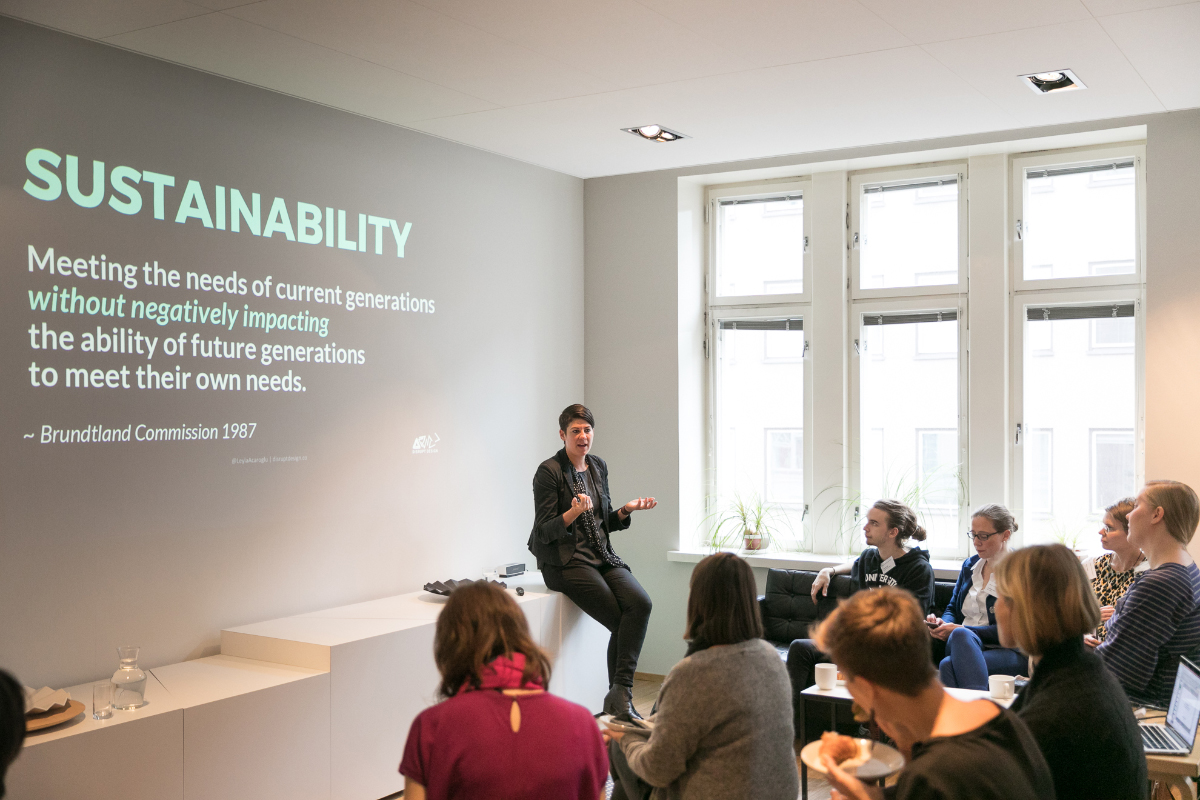
WHAT IS IT?
Ecodesign Sprint is a three-day training and acceleration programme in the circular economy. It is intended for SMEs and design agencies that want to learn more about the possibilities of the circular economy.
The primary goal is to provide the participants with in-depth knowledge on the possibilities and business models of the circular economy. Another goal is to develop the business of SMEs and create more sustainable products and services for them.YOUR BENEFITS
» vantage point into the business potential of the circular economy
» customised support and mentoring
» boost for product development
» two product or service concepts or prototypes for further developmentWHO IS IT FOR?
The programme is intended for SMEs, regardless of their sector, location or experience in the circular economy or design. Another target group are design agencies that want to strengthen their expertise in the circular economy.
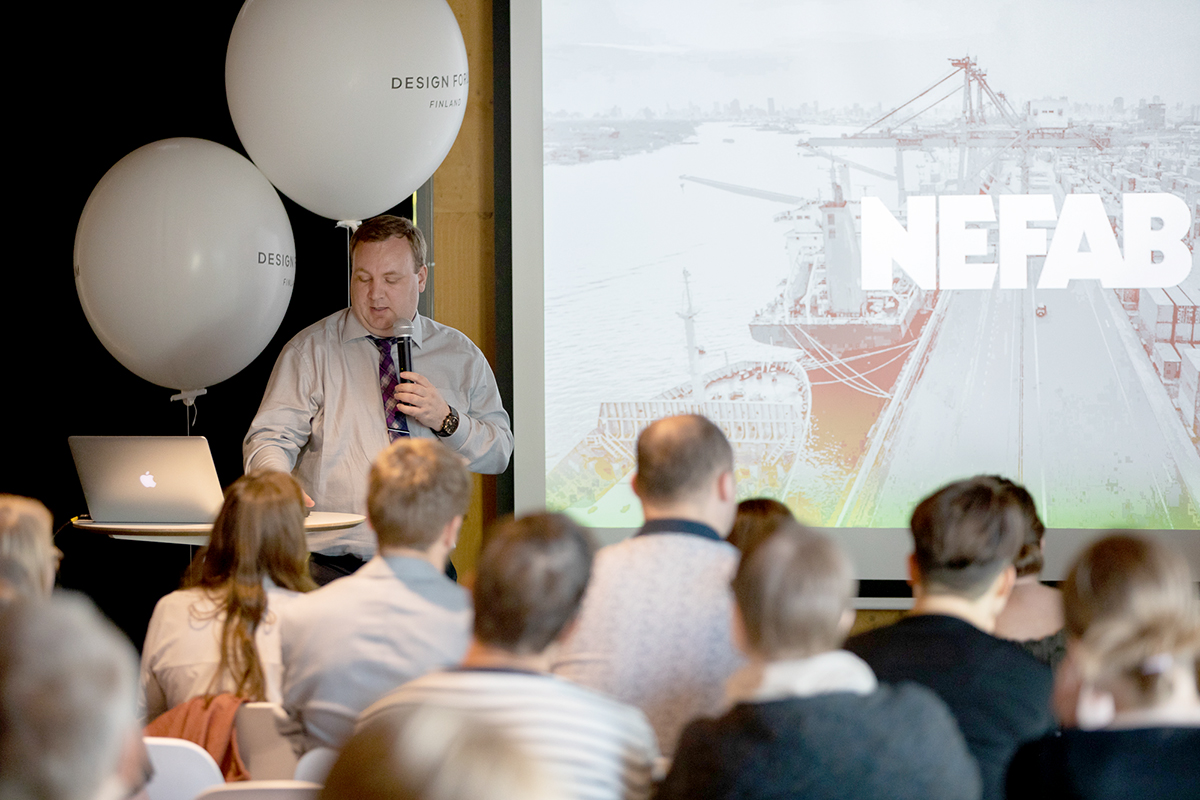
OPINIONS from companies
» ... We were encouraged to think outside the box and generate crazy ideas, which does not happen in the comfort zone. We were able to develop the concepts together quite far in just two days. ...
» ... These kinds of workshops open your eyes. ...
»... We are dealing with such broad entities and so many possibilities which makes it challenging to select ideas to develop. I was surprised of how much material and possibilities there are. But which way to go... well, that sorts itself out through the process. ...

OPINIONS from design agencies
» ... From our perspective, EcoDesign Sprint has brought us to a greater understanding on the significant potential of design in enabling and advancing the circular economy. It is a great tool for creating solutions to complex problems. ...
» ... Once you’ve put these circular design specs on, you cannot take them off anymore. ...
»... After all, design is such a great tool to create new concepts, processes and alternatives models. So, this has definitely made me realise the business potential of developing circular products and services for companies. ...
-
FINLAND (2017-2018)
STEP 1: SELECTION
The companies and design agencies participating in the EcoDesign Sprint were selected through an open call in September 2017 resulting in 22 applications from both companies and design agencies. Three companies and three design agencies were chosen to participate in the Sprint.
The most important selection criteria were an interest in product and service development according to circular economy, and the willingness to invest time in the Sprint process. In the selection of companies, versatility and divergence were underlined; thus SME's from the food, building and textile industries were chosen this time. In the selection of design agencies the mutual compatibility of a client company and a design agency was underlined.STEP 2: AUDIT
The Audits surveyed the capacity and utilization of design in general and circular design in particular in the companies. They indicated what the organizations should do to adopt circular economy and circular design as part of their strategies and product development processes.
The Audits were conducted during one working day in each company, consisting of getting familiar with the company and interviewing its representatives. The Audits were conducted by circular economy specialist Anne Raudaskoski from Ethica Oy as the auditor and a project manager from Design Forum Finland as the observer.
The results of EcoDesign Audit offered extensive information on the company’s current stage and procedures of circular design, and they created valuable background information for the Sprint workshops.STEP 3: SPRINT - FIRST WORKSHOP
In the workshops, two business concepts after the principles of circular economy were developed for the company. The Sprint teams were instructed by circular economy specialist Anne Raudaskoski.
In principle, each Sprint had three phases: 1. to understand; 2. to ideate; 3. to create concepts. Each of these phases took one working day.
During the first workshop day, the lifecycle of the company's products and services was researched, guided by Anne Raudaskoski. The work was based on the EcoDesign Audit reports. This resulted as a business model canvas or roadmap.STEP 4: SPRINT - SECOND WORKSHOP
Based on the results of the first day, the selected design agency ran a workshop on the second Sprint day. Here, the methods included co-design and ideation and charting possibilities for business models. Preliminary business concepts were already jointly ideated.
These two days provided the design agencies with valuable information about the company and its resources, which formed the basis for further development of concepts for the companies.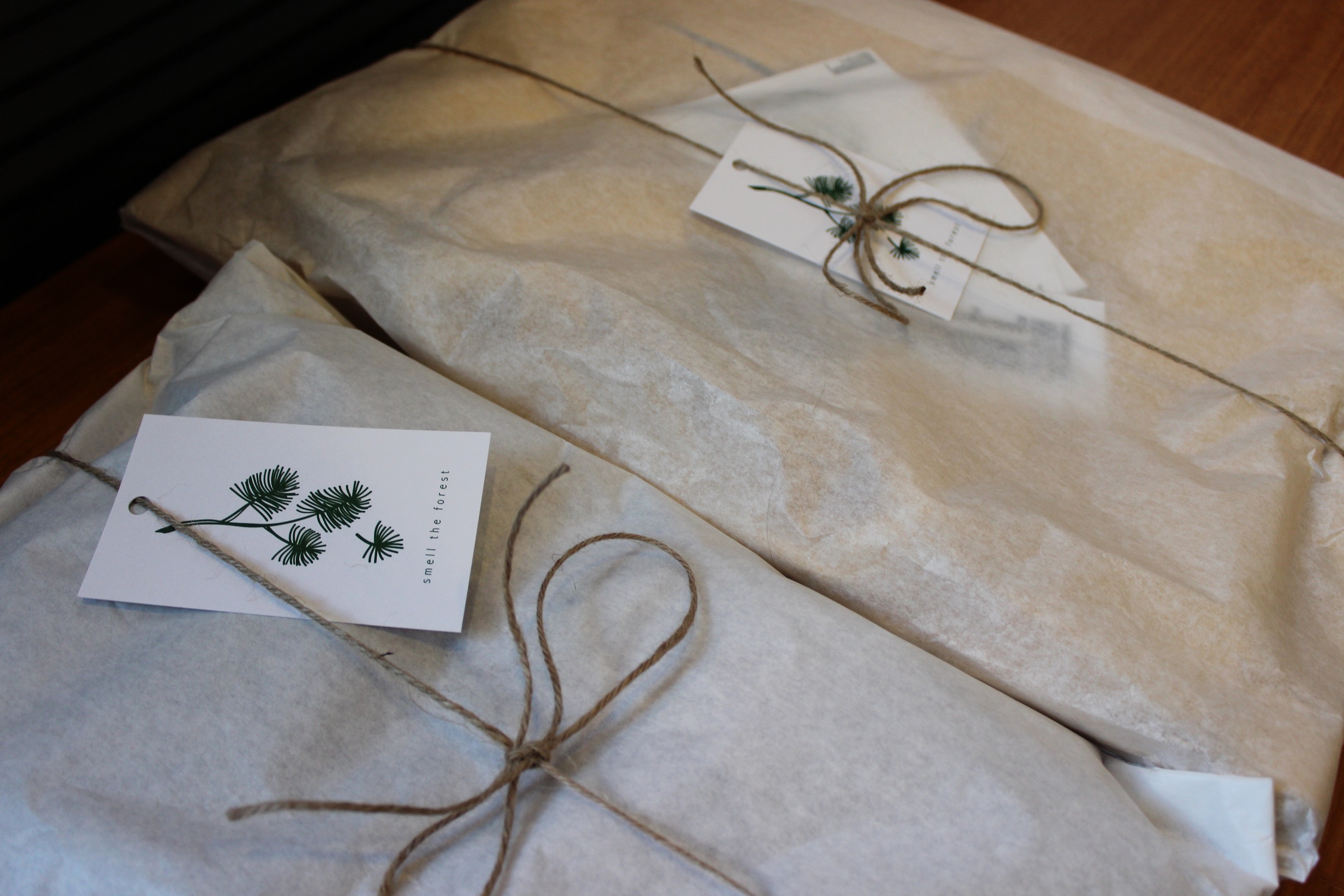
STEP 5: SPRINT - PROTOTYPES
The third day, again with the design agency, resulted as two protypes or concepts. One of the concepts was a short-term proposition which the company can immediately apply in its operations. The other was to be further developed to a roadmap or a vision which would provide with ideas for longer-term changes and operations.
CONCLUSIONS
EcoDesign Sprints have given very positive experiences to all those concerned. The design agencies have gained knowledge and understanding about circular design and realized what pioneering advantage and business opportunities lie in circular economy and design.
The client companies have been excited about the new opportunities of competitiveness and sustainability, and further cooperation is being planned.
Both Design Forum Finland and Ethica have found EcoDesign Sprint as a good and versatile tool and there is willingness to develop it further.Pictures: Kalle KatailaRUSSIA (2020)
pictures: Elena Gontarenko | Medina Art
In February 2020, Design Forum Finland continued piloting EcoDesign Sprints, this time in neighbouring Russia.
Our local project partner is Medina Art, whose long experience in the furniture sector brought us the client First Furniture Factory, a furniture company based in Saint Petersburg. The Sprint focused on the examination and development of First Furniture Factory’s kitchen and contract furniture manufacturing sector. The company had already participated in the EcoDesign Learning Factory training course and the EcoDesign Audit process developed in the EcoDesign Circle project.
The aim of this EcoDesign Sprint was to explore First Furniture Factory’s potential to transform its operations to conform with circular economy using design methods and to deepen the participants’ understanding of circular economy principles. This time, the Sprint took the form of a two-day workshop customised to meet the objectives of the company. The workshop was facilitated by the circular economy expert and co-founder of Ethica Oy Anne Raudaskoski.
Each EcoDesign Sprint workshop is tailored to meet the needs of the client company, but its body consists of short lectures on the principles of circular economy and ecodesign along with exercises using cooperative design methods. During the Sprint workshop, the participants learn about design and life cycle thinking and understand how to apply them in the development of their own products and services. The multidisciplinary and multinational workshop team (with participants from Russia, Estonia, Finland and Germany) was very motivated and focused throughout the Sprint. A speciality of the Saint Petersburg Sprint was a graphic facilitator who crystallised the ideas created in the workshop by drawing over the days. The illustrations clarified the results of the workshop and were particularly useful this time as not all participants had a common language. Thus, the presence of an interpreter was also essential!
As a result of the intensive workshop days, three initial circular economy concepts were developed for First Furniture Factory, related to the modular design of new products, a new service model for leasing products and better access to information intended for customers. The company will continue to develop these concepts under the leadership of its own design team and supported by a local circular economy experts. The aim is to implement prototypes of the concepts during the project.
This report was first published by Design Forum Finland
Video (in Russian)
ESTONIA (2021)
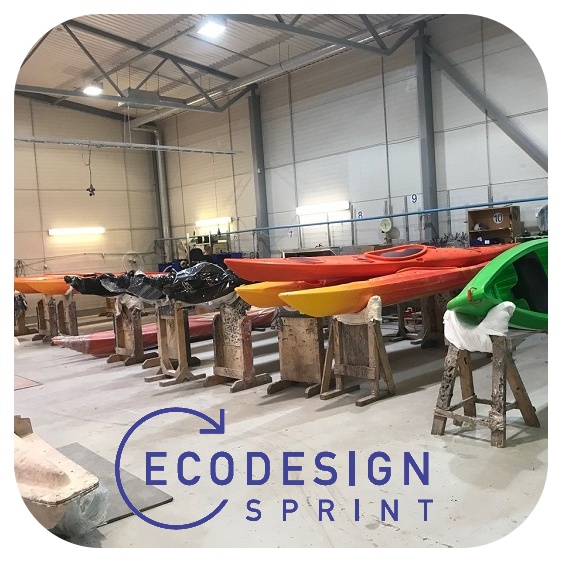
picture: Estonian Design Center
Unlike the traditional EcoDesign Sprint, the EcoDesign Sprint 4.0 is not only designed for products, but also for services. One of the three EcoDesign Sprint 4.0 pilots was carried out with the Estonian company "Tahe Kayak". "Tahe Kayak” is a manufacturer of canoes and kayaks whose customers are mainly based in Scandinavia and Northern America. The company belongs to the "Tahe Outdoors" group. In the sprint, they decided to concentrate on the premium brand "Zegul". There are two different methods of manufacturing kayaks: rotation manufacturing and customer-built kayaks. The customer-built kayaks are mostly made of many different materials, including carbon fibre and other material blends - these make the kayaks stable and guarantee a long product life, but they are also harder to recycle. The goal of the sprint was to develop a strategy for reselling used kayaks and giving them a second life.
The Sprint was conducted by an Estonian environmental expert (Kaisa Hansen, innovation and business centre Mektory) and an Estonian service designer: Joel Kotsjuba (Velvet design agency). Joel Kotsjuba summarised the ten most important key takeaways from his side:
-
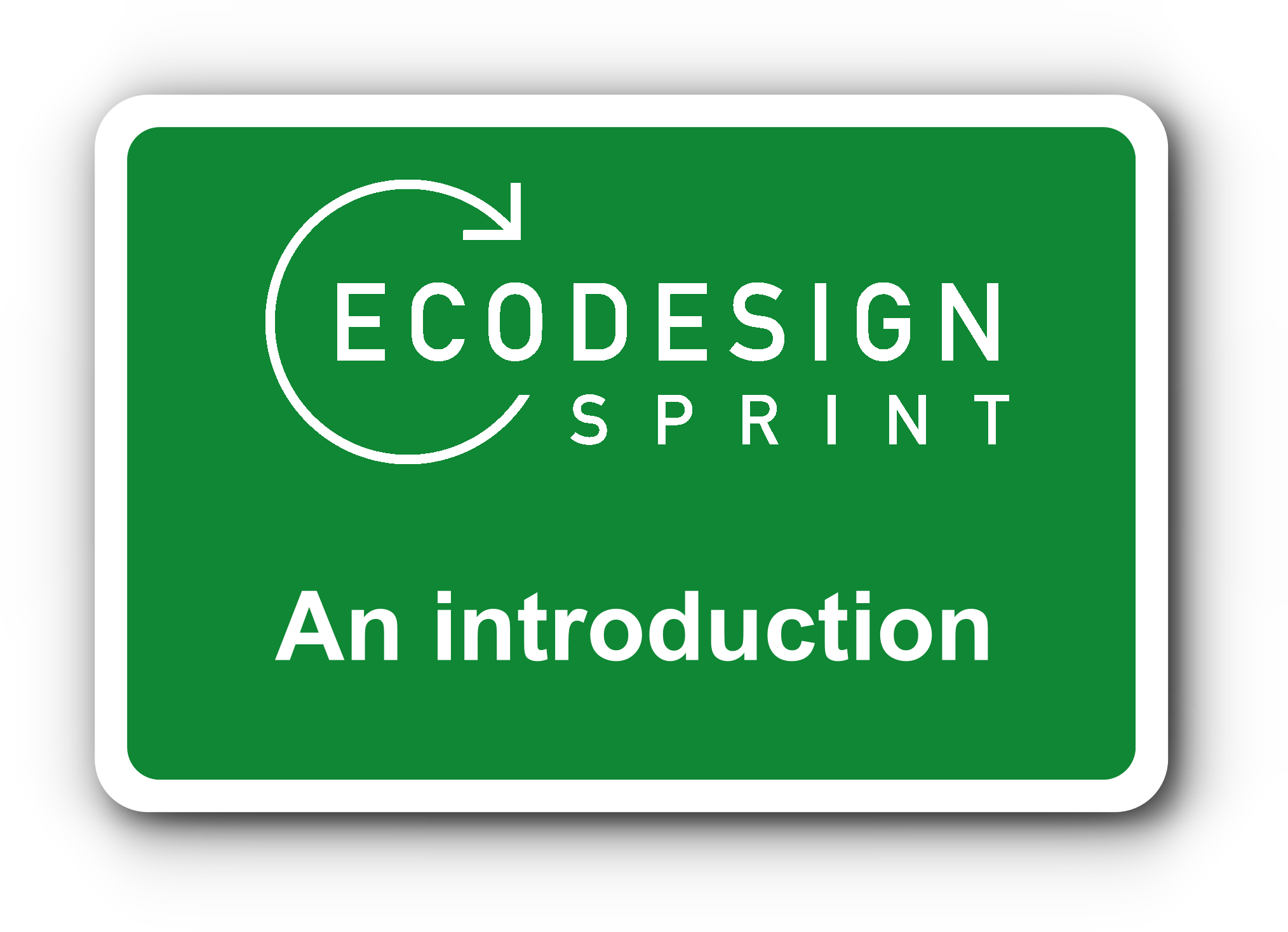
INTRODUCTION TO ECODESIGN SPRINT
The strategic tool for circular business development
This booklet has been created byDesign Forum Finlandto introduce the EcoDesign Sprint method and to give the reader an overview of its processes as a whole.
+++ русская версия +++
CO-CREATING A CIRCULAR FUTURE:
CASE ECODESIGN SPRINT
Master's Thesis by Oona Anttila
This study demonstrates the relevance of using collaborative design in developing solutions that promote the shift to a circular economy. A pilot of the EcoDesign Sprint Approach in Finland was investigated and evaluated. Have a deeper look at the Sprint Approach.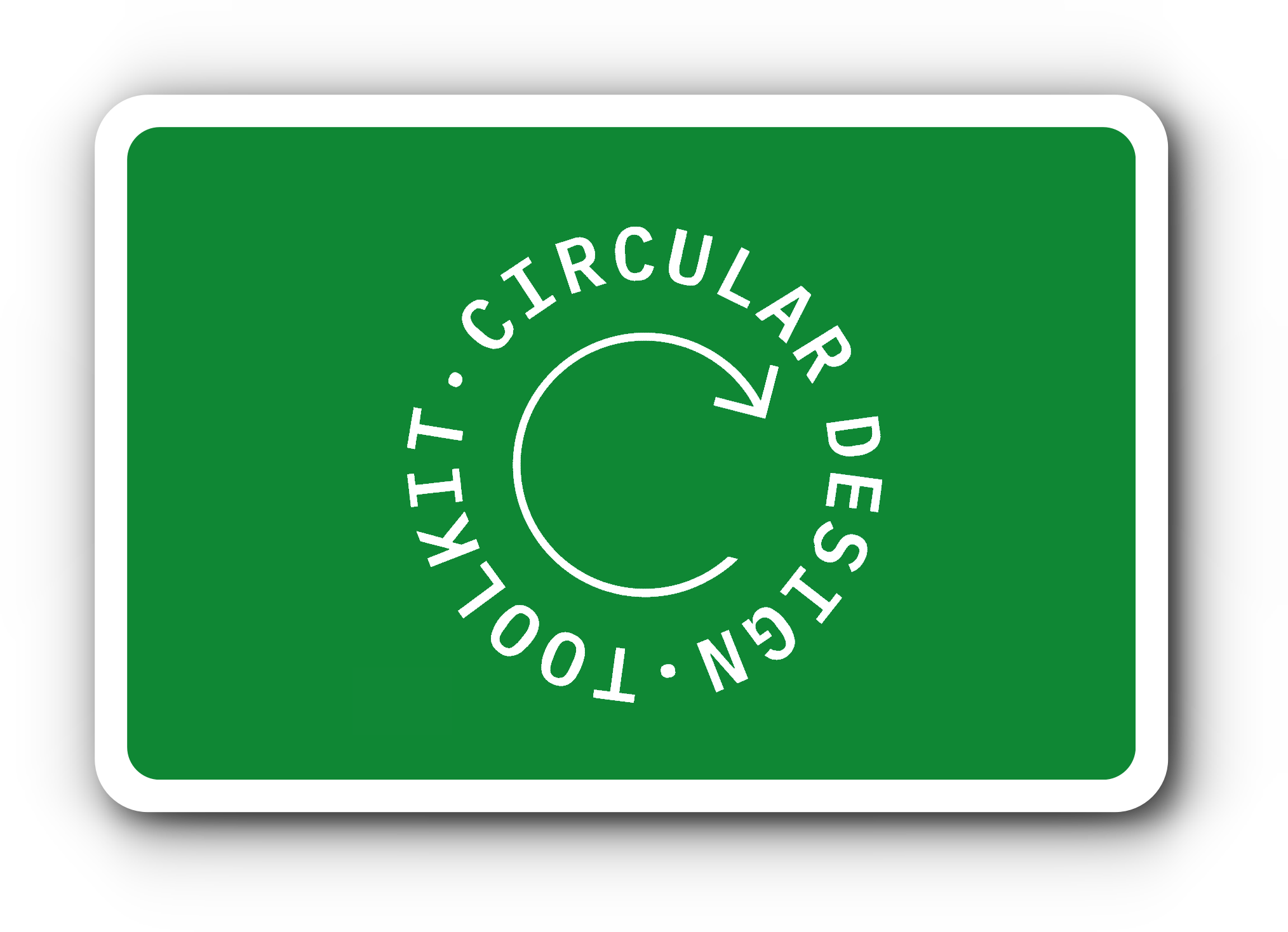 Our toolkit for circular design workshops
Our toolkit for circular design workshops
- CIRCULARDESIGN.TOOLS
Discover tools that helps you innovate circular solutions for your product or service. - MURAL BOARD
Materials for a digital workshop version of the Ecodesign Sprint.
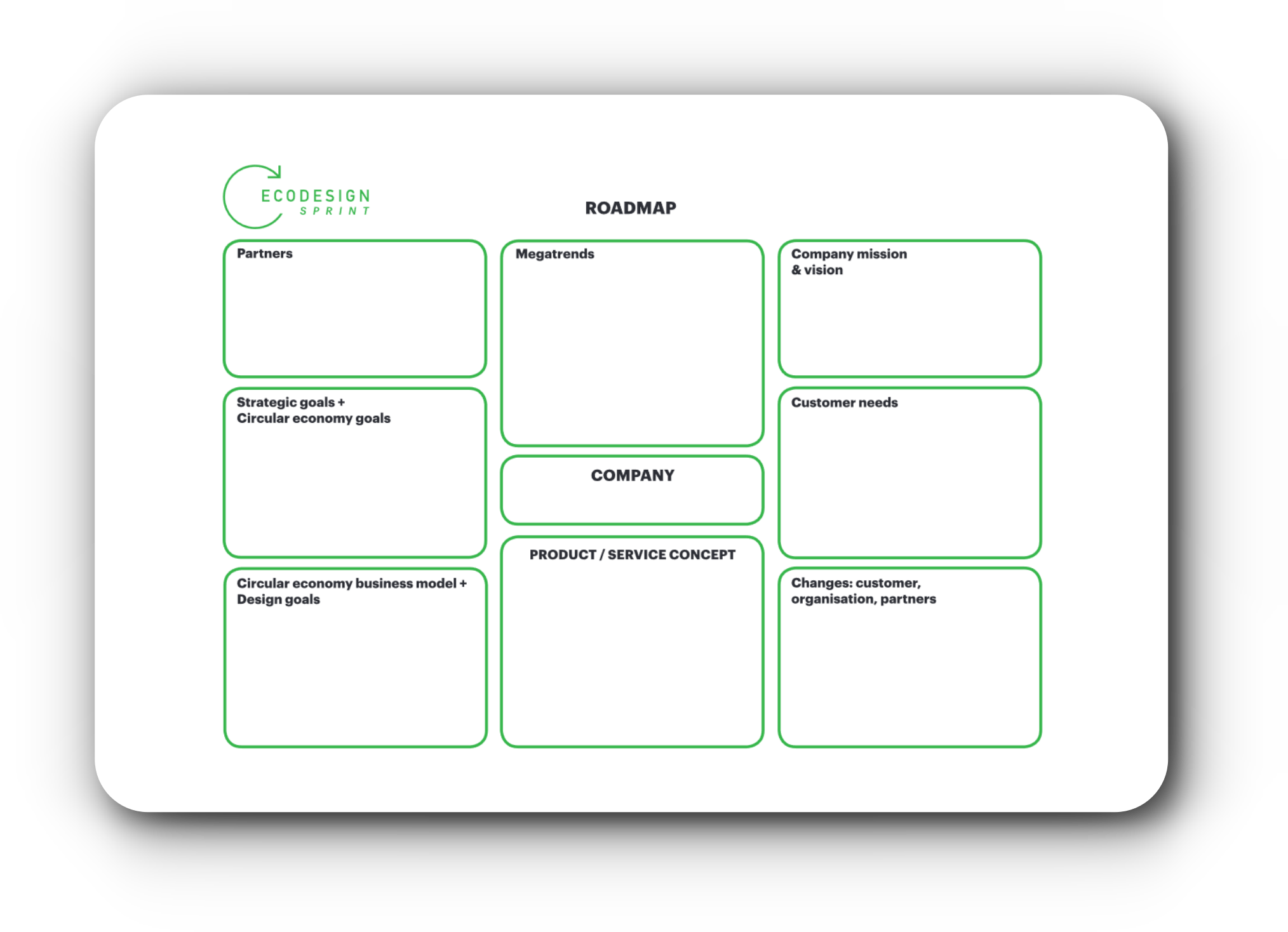
Download EcoDesign SPRINT CANVASES:
ROADMAP (Size A0) | русская версия
LIFE CYCLE MODEL (Size A1) | русская версия
TASK CARDS (Size A4) | русская версия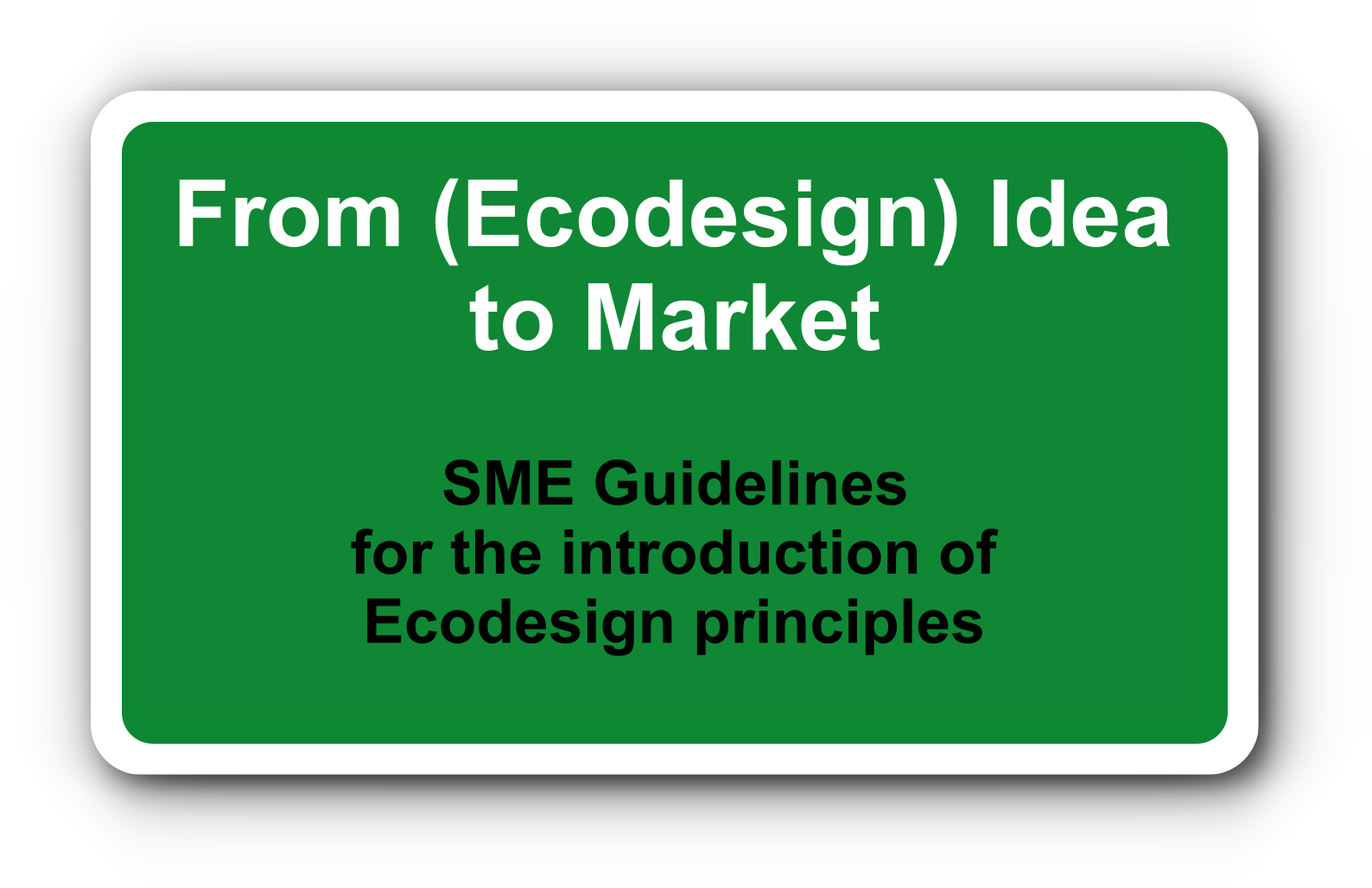
FROM (ECODESIGN) IDEA TO MARKET
SME Guidelines for the introduction of Ecodesign principles
The present guidelines have the goal to accompany SMEs on their way ‘from idea to market’ and are meant to support the evaluation and practical implementation of EcoDesign from an economic point of view.
The booklet has been elaborated by the Berlin Institute for Innovation Research.
- CIRCULARDESIGN.TOOLS
-
EcoDesign Sprint: How to create circular business? (Explanation movie 2019) - 2 min
Circular Design Webinar by Ethica & Finnish Design Forum (Online seminar 2020) - 1 h 13 min
EcoDesign Sprint Discussion: developing ecodesign – expectations & experiences (during Design Forum Talk 2018) - 32 min
Circular Design HOW TO session 5: EcoDesign tools in practice (Online seminar 2021) - 1 h 34 min
-
Please be in contact if you have any questions.
Saija Malila
This email address is being protected from spambots. You need JavaScript enabled to view it.
+358 44 727 2280
designforum.fi/

